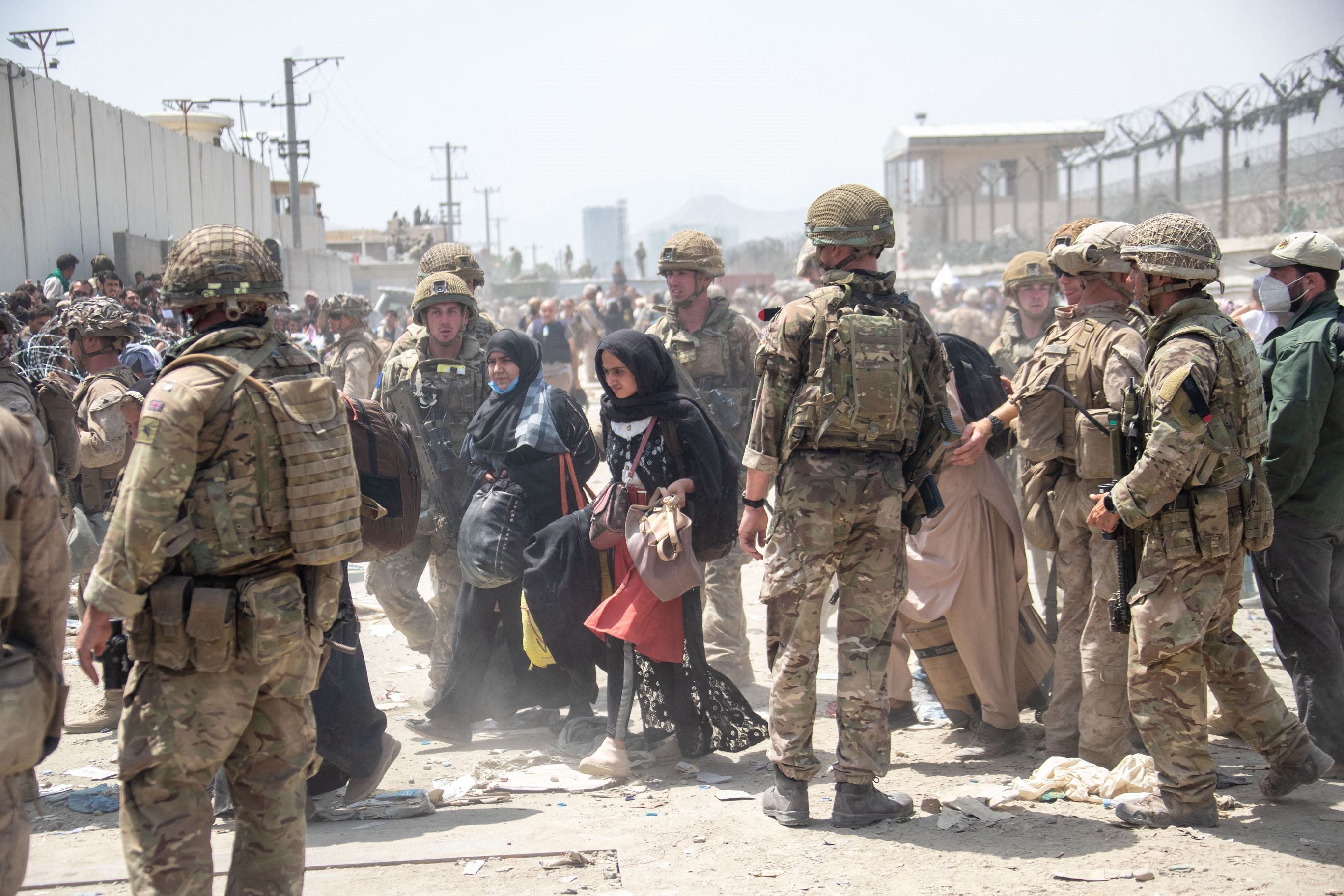Afghanistan: G7 expected to hold threat of future sanctions over Taliban
Leading democracies set to agree unified approach on whether to recognise new regime

An emergency summit of G7 states chaired by Boris Johnson is expected to agree a unified approach on the future use of sanctions on Afghanistan, but hold back from immediate measures against the new Taliban regime which has seized control in Kabul.
Foreign secretary Dominic Raab today insisted that the UK is ready to use “all the levers at our disposal” - including sanctions - to protect the people of Afghanistan and prevent the country again becoming a base for terrorism.
His warning came just a day after Downing Street denied reports that the UK was pressing world leaders to consider imposing sanctions at this afternoon’s virtual summit.
Instead, the G7 countries - the UK, US, France, Germany, Italy, Canada and Japan - are expected to agree to take a unified front on the questions of when and if to recognise the Taliban regime and any future measures in retaliation to breaches of obligations on human rights and terrorism.
One Whitehall source told The Independent that the Taliban had indicated that, unlike during its previous period of power before 2001, it wants Afghanistan to maintain ties with the outside world in areas such as trade. London wants the G7 to send the message to the new rulers in Kabul that the quid pro quo for international links of this kind will be the disavowal of terrorism and respect for human rights.
It is understood that no planning is currently under way on specific sanctions, but that Mr Raab’s comments were intended to signal to Kabul that they are a tool which the UK will not hesitate to wield in future.
Foreign affairs committee chairs from the parliaments of the G7 states issued a joint statement calling for the leaders at today’s summit to back a UN resolution setting out binding commitments on the Taliban as a condition of co-ordinated international recognition of the Kabul regime, with “robust sanctions” in response to violations.
These should include repudiation of all cross-border terrorism, equality of rights for girls and women, protection of minority groups, commitment to democratic elections and ending all narcotics activity, said the committee chairs, including Tory MP and Afghanistan veteran Tom Tugendhat.
“There is little indication from its past or present behaviour that the Taliban is committed to any of these principles, so the G7 countries should be prepared to isolate the Taliban and impose robust sanctions should violations reach an agreed threshold,” said the joint statement.
Writing in the Daily Telegraph, Mr Raab said that the UK was focused on ensuring that gains made over the past 20 years in Afghanistan are not lost.
“Our priorities are clear,” he said. “Afghanistan must never again be used as a base for terrorist attacks. We will have to address the looming humanitarian crisis in the country, which would also threaten regional stability, and we must strive to secure a more inclusive Afghan government that can maintain stability and avoid the kind of rights abuses that the Taliban have committed before, particularly against women.
“We will use all the levers at our disposal, including sanctions, aid and access to international finance systems, and we are rallying our international partners around these shared priorities.”
US president Joe Biden told reporters on Friday that he and secretary of state Antony Blinken would work with other countries to set “harsh conditions” for any co-operation with or recognition of the Taliban, based on their treatment of women and girls and overall human rights record.
The UK ambassador to Washington, Dame Karen Pierce, said that Mr Johnson will stress a unified approach during the 90-minute video-conference.
“We want to start the process of developing a clear plan, so that we can all deal with the new Afghan regime in a unified and concerted way,” said Pierce. “We will judge the new regime by actions, not words.
“We want to work together to convey the very important point that we don’t want Afghanistan to be a breeding ground for terrorism. We don’t want it to lapse into its pre 9/11 state.”
Biden told reporters on Sunday that the US was already working with the Taliban to facilitate the evacuations, but that the Islamist group was “seeking legitimacy” in the longer term.
That meant it would need “additional help in terms of economic assistance, trade, and a whole range of things,” but the international response - including potential sanctions - would depend on their actions going forward.
Join our commenting forum
Join thought-provoking conversations, follow other Independent readers and see their replies
Comments
Bookmark popover
Removed from bookmarks